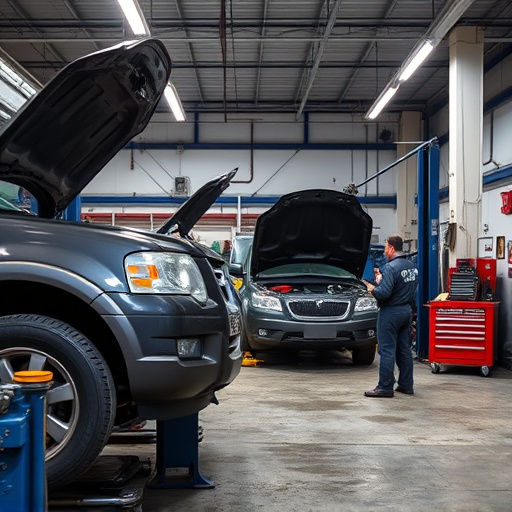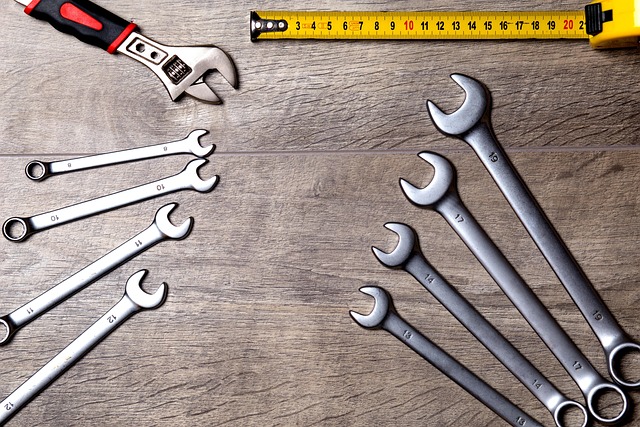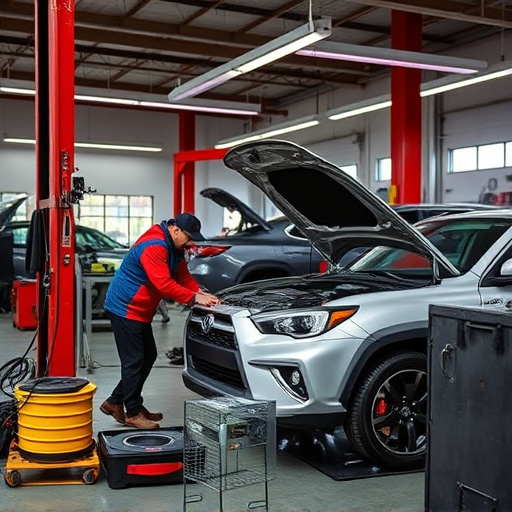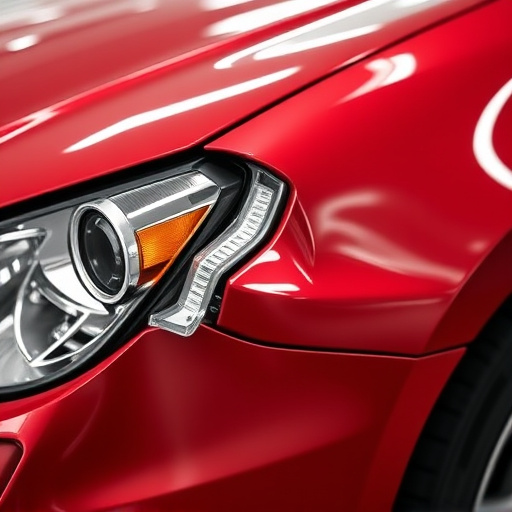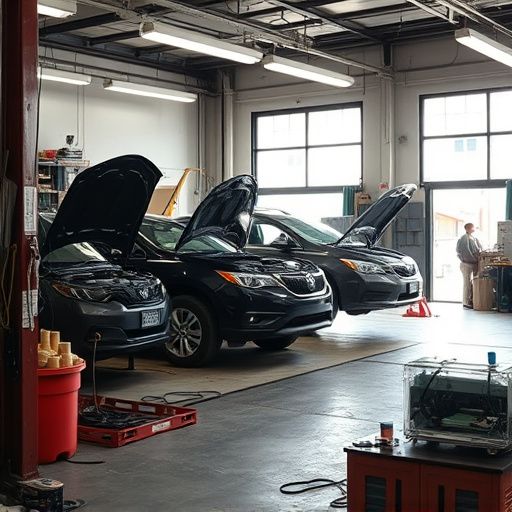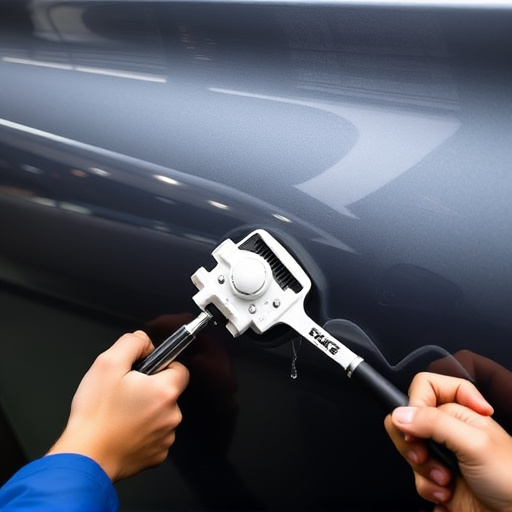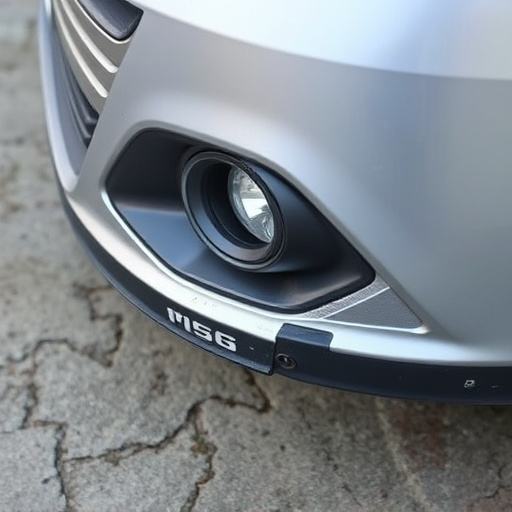Ultrasonic thickness gauges are critical tools in vehicle body shops for measuring and documenting auto glass replacement and hail damage repair, providing precise thickness measurements and enhancing communication, customer satisfaction, and workshop efficiency. These non-destructive devices aid in detecting subtle dents, guiding repair processes, and ensuring industry standards through secure digital data sharing.
In today’s precision manufacturing landscape, body shops rely on ultrasonic thickness gauges for accurate material measurement. This article delves into the efficient recording and secure sharing of this sensitive data by body shops. Understanding how these gauges provide critical information is key. We explore the processes behind recording measurements on the shop floor and highlight secure methods for sharing data within teams and clients, ensuring confidentiality and maintaining high-quality standards.
- Understanding Ultrasonic Thickness Gauge Data
- Recording Processes in Body Shops
- Secure Sharing of Sensitive Measurements
Understanding Ultrasonic Thickness Gauge Data
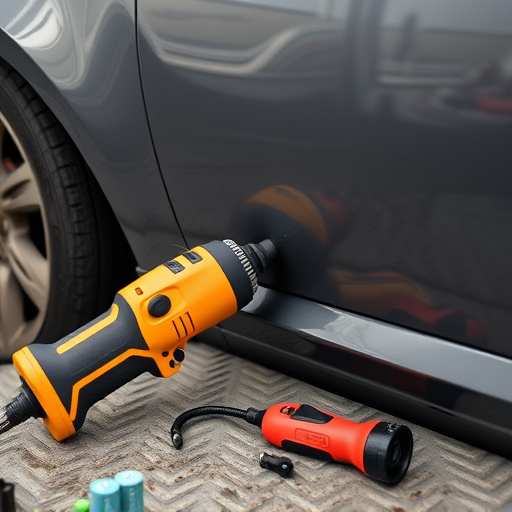
Understanding Ultrasonic Thickness Gauge Data
Ultrasonic thickness gauges are essential tools used by vehicle body shops to measure and record the thickness of various materials, especially in auto glass replacement and hail damage repair processes. This technology employs high-frequency sound waves to penetrate the surface of a material, providing precise measurements that can detect even the slightest variations in thickness. The data collected offers critical insights into the integrity and quality of components, ensuring that repairs are carried out accurately and consistently.
In a bustling vehicle body shop environment, efficient record-keeping and data sharing become paramount. Ultrasonic thickness gauge data allows for detailed documentation of each repair process, facilitating seamless communication among technicians and managers. This real-time information exchange ensures that every step of the hail damage repair or auto glass replacement is tracked accurately, leading to higher levels of customer satisfaction and improved overall workshop efficiency.
Recording Processes in Body Shops
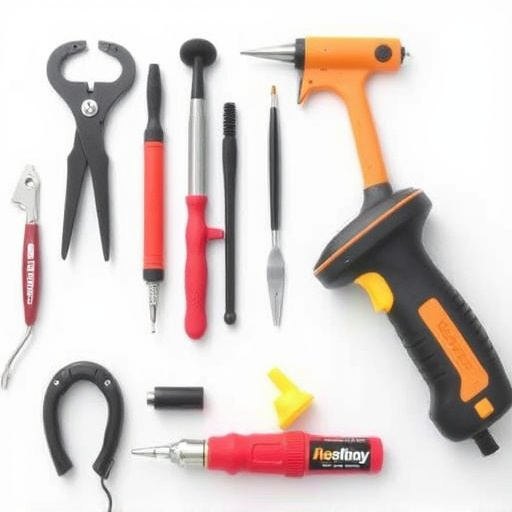
In modern body shops, recording processes using ultrasonic thickness gauges play a pivotal role in ensuring precise and consistent car dent repair and car damage repair services. These non-destructive testing methods measure the thickness of materials, such as metal panels, accurately. The data gathered is crucial for determining the extent of car bodywork services required, especially when dealing with subtle dents or damage that might not be immediately visible to the naked eye.
Body shops employ these gauges at various stages of the repair process. After assessing the damage, technicians use ultrasonic thickness gauges to verify the integrity of panels and components before proceeding with any repairs. This data is meticulously recorded and stored for future reference, enabling efficient tracking of progress and ensuring that each car dent repair or car damage repair job adheres to industry standards and quality benchmarks.
Secure Sharing of Sensitive Measurements
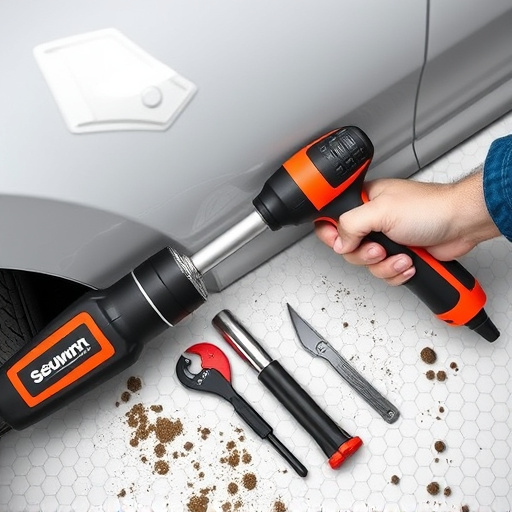
In the realm of precision measurements, especially within the context of automotive restoration and vehicle repair services, the ultrasonic thickness gauge plays a pivotal role. These advanced tools are designed to record sensitive data with meticulous accuracy, which is crucial for ensuring the integrity of components during repairs. The ability to securely share this critical information is equally vital, fostering collaboration among automotive repair professionals and streamlining work processes.
Through robust digital platforms, body shops can now safely transmit ultrasonic thickness gauge data from one team member to another or even to external specialists. This secure sharing ensures that sensitive measurements are protected from unauthorized access while enabling quick decision-making and accurate repairs. In the fast-paced world of automotive repair, efficient data exchange is not just an advantage; it’s a game-changer that enhances overall efficiency and quality control.
Body shops now have a powerful tool for precision and efficiency with ultrasonic thickness gauges. By understanding how this technology works, recording processes accurately, and sharing data securely, these shops can ensure high-quality work and maintain customer satisfaction. Implementing these practices enables body shop professionals to make informed decisions, optimize their operations, and ultimately enhance the overall automotive repair process using advanced measurement techniques.


